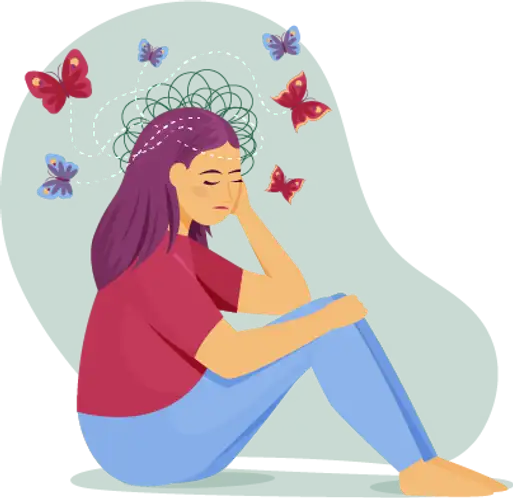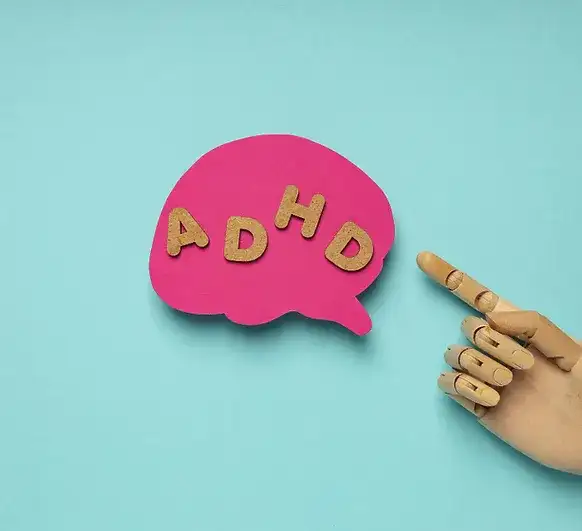ADHD at Reliant Family Psychiatry in Mansfield and Grand Prairie, TX.


Understanding ADHD
ADHD, or Attention-Deficit/Hyperactivity Disorder, is a neurodevelopmental condition that affects how a person focuses and manages their energy.
At Reliant Family Psychiatry, we generally see three main types of ADHD:
- Inattentive Type: People with this form often have trouble staying focused on a single task. They might miss small details, lose important items frequently, and get easily sidetracked. Complex instructions can be tough for them to follow.
- Hyperactive-Impulsive Type: Those who fall into this category tend to be noticeably restless. You might see them fidgeting, like foot-tapping, interrupting in conversations, or struggling to stay still in calm settings. They’re often impulsive too, making quick decisions without fully thinking them through.
- Combined Type: This type blends characteristics of both inattention and hyperactivity-impulsivity. It’s actually the most common way ADHD shows up, with individuals displaying a mix of symptoms from both categories.
Symptoms Across Ages
To accurately diagnose ADHD, there are specific requirements that need to be met:
- Duration of Symptoms: The symptoms must have been around for a substantial amount of time. We’re talking about clear signs that have been present for at least the past six months.
- Age of Onset: Although ADHD can be identified at any age, it typically starts showing up in childhood. So, for a sound diagnosis, these symptoms should have been noticeable before turning 12.
- Impact Across Different Settings: A key part of diagnosing ADHD is seeing how these symptoms create challenges in more than just one area of life. This means the issues aren’t confined to just home life; they also need to be apparent in other places like school, during social events, or in various other activities
Symptoms of ADHD
Symptoms can vary depending on the type of ADHD and the individual, but some common signs include:
Children: Beyond the usual restlessness, kids with ADHD might struggle with awaiting their turn, tend to daydream frequently, avoid tasks that require prolonged focus, or make repeated careless mistakes in schoolwork.
Adolescents: Teenagers might display poor organizational skills, frequently misplace belongings, get easily frustrated, constantly interrupt or talk excessively, and show a decline in academic performance.
Adults: In adults, chronic procrastination, difficulty sustaining attention in tasks or recreational activities, frequent forgetfulness in daily activities, mood swings, and persistent challenges in setting and achieving goals are common signs.
If you or someone you know might be exhibiting signs of ADHD, it’s essential to seek expert guidance. At Reliant Family Psychiatry, we provide a comprehensive assessment and offer tailored treatment plans to help individuals lead a fulfilling life despite ADHD challenges.
Causes and Risk Factors
The precise cause of ADHD isn’t entirely understood, but several factors are believed to play a role:
- Genetic Links: ADHD seems to have a strong genetic component. There are multiple genes, particularly those connected to the neurotransmitter dopamine, that appear linked to the disorder. While no single gene is a definitive predictor of ADHD, a combination of genes might make some individuals more prone to it. Studies involving identical twins and adopted children have shown a higher occurrence of ADHD among identical twins, indicating a significant genetic factor.
- Environmental Influences: The environment, especially during prenatal development and early childhood, can significantly influence the likelihood of developing ADHD. Prenatal exposure to tobacco smoke, alcohol, or illegal drugs may increase the risk. Children who encounter high levels of lead from sources like old paint or plumbing, or other environmental pollutants in their early years, might be more prone to ADHD. Early-life experiences of trauma, abuse, or extreme neglect can also contribute to the development of ADHD symptoms.
- Brain Structure and Function: Advances in neuroimaging have revealed variations in the size and activity of certain brain areas in individuals with ADHD. For instance, the prefrontal cortex, crucial for executive functions such as focus, decision-making, and impulse control, may be smaller or less active in those with ADHD. Additionally, the brain’s communication networks, including those related to dopamine, may operate differently in individuals with this condition.

Medications
There’s a range of medications available, primarily stimulants, which have shown to be effective in treating ADHD. These medications can significantly improve concentration and focus while reducing impulsive behaviors. It’s important to note that the effect of medications can vary among individuals, and what works best for one person might not be suitable for another. Therefore, periodic evaluations and adjustments might be required.
Behavioral Therapy
This is a structured form of treatment that aims to shift negative behavior patterns into positive ones. For children with ADHD, this could mean practicing patience, learning to wait their turn, or developing strategies to complete tasks. For adults, it might encompass time-management skills or ways to reduce impulsive decision-making. Behavioral therapy can be beneficial not just for the individual with ADHD but also for families to understand and manage the condition better.
Educational Support
Recognizing ADHD’s impact on learning, many educational institutions now offer tailored plans. These Individualized Education Programs (IEPs) or 504 plans ensure that children with ADHD receive the necessary support in their learning environment. This could be in the form of extended test times, frequent breaks, or assistance in note-taking.
Lifestyle Changes
Regular physical activity can help manage symptoms by improving concentration and decreasing anxiety and depression. A balanced diet, adequate sleep, and mindfulness practices like meditation can also complement other treatments to improve overall well-being.

Discover a brighter mental well-being journey at Reliant Family Psychiatry in Texas!
- We're here to guide you every step of the way. Choose Reliant Family Psychiatry today


